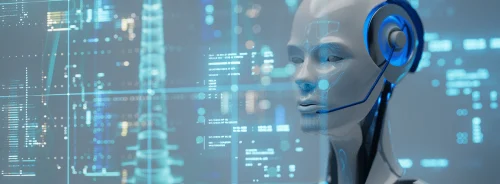The healthcare and life sciences industries are on the cusp of a technological revolution, with artificial intelligence (AI) poised to play a pivotal role in addressing some of the sector's most pressing challenges. The global market for AI in healthcare is projected to reach an astounding $187.95 billion by 2030, reflecting its potential to reshape the industry. This is particularly significant for Europe, where an ageing population and a looming shortage of healthcare professionals present substantial hurdles. By harnessing AI, Europe can overcome these challenges and significantly improve healthcare outcomes and efficiency.
AI in Frontline Clinical Work
AI's applications in frontline clinical work hold immense promise for addressing gaps in the life sciences industry. In areas such as drug discovery, patient recruitment, and globalising clinical trials, AI has the potential to expedite processes that traditionally take years to complete. By automating the drug development pipeline, AI can accelerate the testing phase, bringing life-saving treatments to market faster. Moreover, machine learning (ML) algorithms can analyse vast datasets, identifying trends and predicting drug efficacy for specific patient populations. This is especially valuable for immunocompromised patients, where personalised treatments can make a critical difference. AI's ability to streamline clinical work improves patient outcomes and alleviates the burden on healthcare professionals.
AI in Data Analysis and Predictive Healthcare
Beyond clinical applications, AI is revolutionising data analysis in life sciences. With the proliferation of wearables and sensors, vast amounts of patient data are being generated daily. AI can analyse this data in real time, offering early warnings and predictive diagnoses. Electronic Health Records (EHRs) are another area where AI shines, with algorithms identifying patterns across large populations to predict disease onset. Predictive health analytics is already proving its worth, with AI models capable of predicting conditions like Alzheimer's disease years before traditional diagnosis methods. This early intervention can significantly improve patient outcomes and reduce the overall burden on healthcare systems.
AI also enhances patient access to healthcare services. Virtual assistants and chatbots can provide immediate medical information and support, reducing wait times for consultations. Furthermore, AI's role in processing insurance claims helps eliminate manual, time-consuming tasks, speeding up the entire process. By leveraging AI in these areas, healthcare systems can become more efficient, patient-centred, and responsive to emerging challenges.
Generative AI's Transformative Capabilities
Generative AI is another life sciences game-changer, offering unprecedented data generation and analysis capabilities. This technology can learn from vast amounts of unstructured data, creating synthetic patient data, diagnostic reports, and personalised treatment plans. For healthcare professionals, generative AI can recommend optimal treatment regimens, minimise side effects, and tailor dosages based on an individual's genetic profile. Additionally, generative AI can produce medical images that mimic specific conditions, aiding in the training and education of physicians. By automating tedious and error-prone tasks, generative AI improves accuracy and frees up healthcare professionals to focus on patient care. As Europe grapples with a shortage of healthcare workers, these AI-driven efficiencies will become increasingly valuable.
Conclusion
Integrating AI into the healthcare and life sciences industries is set to bring about profound changes, particularly in Europe, where demographic challenges and workforce shortages are pressing concerns. From accelerating drug development to revolutionising data analysis and enabling predictive healthcare, AI's potential is vast. Generative AI further extends these possibilities, offering new ways to enhance patient care and optimise healthcare operations.
However, as with any disruptive technology, the benefits of AI must be carefully balanced against potential risks. Issues such as bias, transparency, and cybersecurity must be addressed to ensure that AI is implemented safely and effectively. By adhering to ethical standards and establishing robust guidelines, the healthcare and life sciences industries can unlock the full potential of AI while safeguarding patient welfare. The future of healthcare is undoubtedly intertwined with AI, and with careful stewardship, this partnership promises to yield transformative results.
Source: HealthTechDigital
Image Credit: iStock






